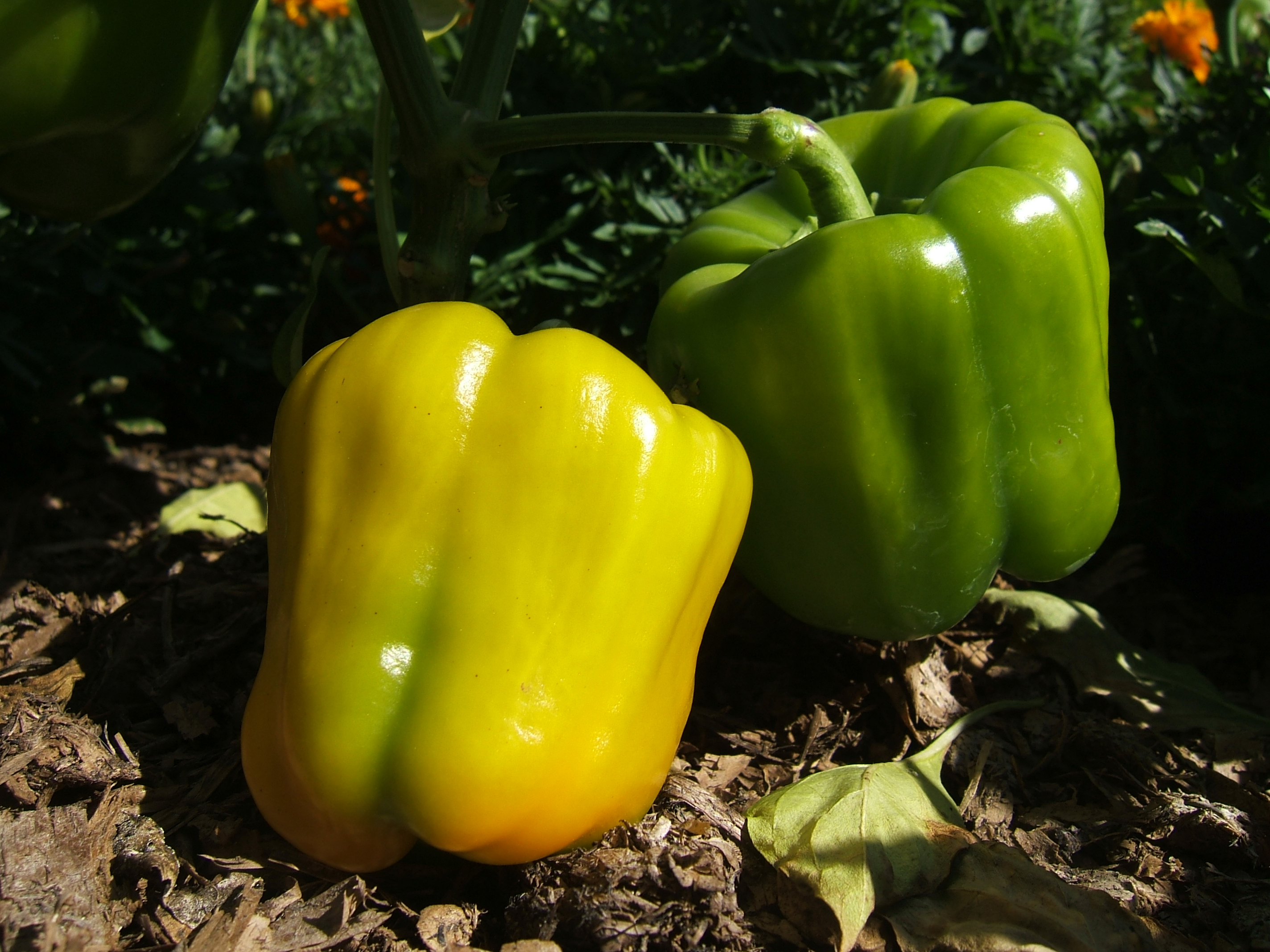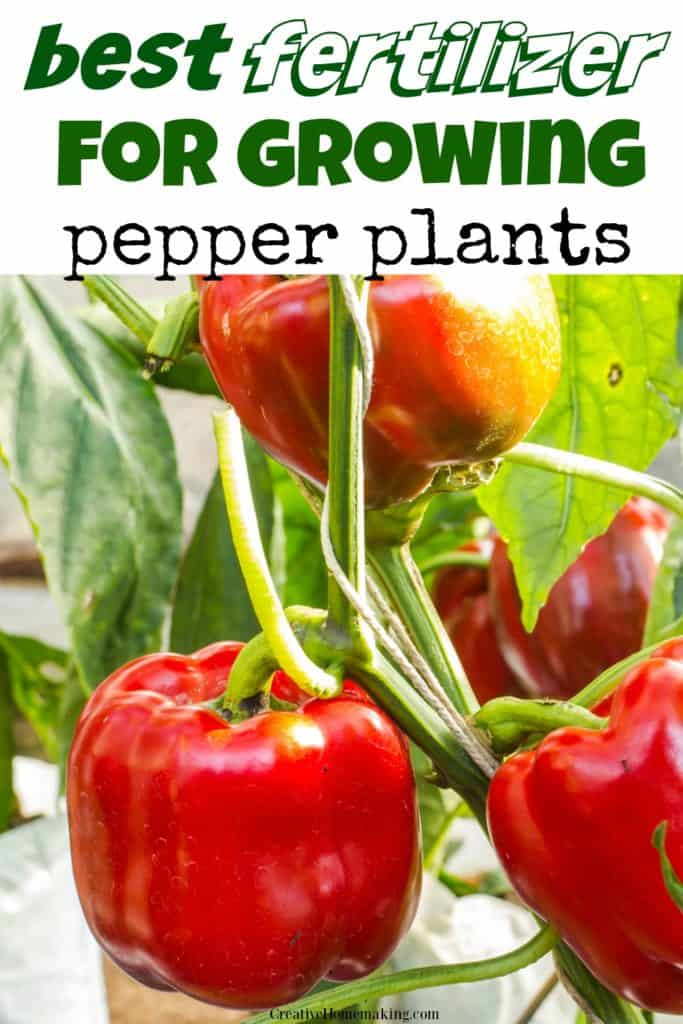Organic Vs. Synthetic Fertilizers: Which Is Best for Nurturing Healthy And Balanced Pepper Plants?
In the world of nurturing healthy and balanced pepper plants, the choice in between organic and artificial plant foods stands as an essential choice with far-reaching implications. While both alternatives objective to provide vital nutrients to support plant development, the nuances of their impact on the dirt, plant health and wellness, and the setting trigger an argument that mirrors throughout the gardening neighborhood. Understanding the distinctive benefits and prospective pitfalls of each fertilizer kind is essential for pepper farmers looking for to enhance their returns while keeping an eco-conscious and lasting strategy.
Advantages of Organic Plant Foods
Organic plant foods provide an environmentally-friendly and lasting strategy to beneficial pepper plants, supplying crucial nutrients without using synthetic chemicals. These natural plant foods are stemmed from natural resources such as compost, manure, bone meal, and seaweed, promoting soil wellness and biodiversity. Unlike artificial fertilizers, organic options launch nutrients slowly, guaranteeing a consistent and well balanced supply for pepper plants to thrive.
One substantial benefit of organic fertilizers is their capability to enhance dirt framework and water retention. By improving dirt health and wellness, natural fertilizers advertise helpful microbial task, which aids in nutrient uptake by pepper plants. In addition, organic fertilizers decrease the threat of chemical run-off, shielding water sources from contamination and safeguarding the environment.
In addition, organic fertilizers add to long-term dirt fertility by promoting the growth of helpful dirt organisms. These organisms help damage down raw material, launching nutrients in a kind that is quickly accessible to pepper plants. best fertilizers for peppers. By fostering a healthy dirt ecological community, natural fertilizers support sustainable pepper cultivation practices that benefit both plants and the atmosphere
Drawbacks of Artificial Plant Foods
Synthetic plant foods, in comparison to their natural equivalents, pose different disadvantages when made use of to nourish pepper plants, impacting both plant health and environmental sustainability. One significant disadvantage of synthetic plant foods is their propensity to seep nutrients from the soil promptly. This fast leaching can bring about vitamins and mineral inequalities in the soil, causing plants to suffer from toxicities or shortages. Furthermore, artificial fertilizers can hurt useful soil organisms, such as earthworms and valuable germs, interrupting the soil ecosystem's equilibrium.
Moreover, the overuse of artificial fertilizers can add to water air pollution. Excess plant foods not soaked up by plants can get rid of right into water bodies, bring about eutrophication, where algae flowers diminish oxygen levels in the water, hurting water life. Moreover, synthetic plant foods are generally stemmed from non-renewable resources, such as fossil gas, adding to carbon discharges and ecological deterioration during their production.
Nutrient Absorption Contrast
When contrasting artificial and natural plant foods in terms of nutrient absorption, natural fertilizers have the advantage of offering a more well balanced and slow-release source of nutrients. Organic fertilizers contain a range of macro and trace elements that are not only helpful for the plants however additionally promote healthy dirt microbial task, which assists in nutrient uptake.
Additionally, organic plant foods enhance soil framework and water retention capacity, enabling pepper plants to gain access to nutrients much more effectively. This improved dirt quality facilitates origin development, making it possible for better nutrient absorption. Artificial plant foods, although originally enhancing plant development because of their high nutrient focus, might her latest blog prevent long-lasting nutrient absorption by derogatory soil health with time.
Environmental Influence Considerations

On the other hand, synthetic fertilizers, although typically even more focused and immediately offered to plants, can have detrimental impacts on the atmosphere if not used properly (best fertilizers for peppers). Their production calls for high power inputs, leading to greenhouse gas discharges and adding to environment adjustment. In addition, the overflow of excess artificial fertilizers can contaminate water resources, resulting in eutrophication and hurting water communities.
Finest Fertilizer Practices for Peppers
To achieve this, it is vital to comply with best fertilizer practices tailored to the details needs of pepper plants. One critical method is to execute a soil test before applying any fertilizers.
Another vital method is to feed pepper plants at the ideal time. Commonly, peppers profit from getting plant food at planting and afterwards once again when they begin to flower. Over-fertilizing can bring about vitamins and mineral discrepancies and harm the plants, so it is crucial to adhere to suggested application prices.
Additionally, choosing a balanced fertilizer with an NPK ratio that fits pepper plants' needs is basic. Ultimately, combining synthetic and natural fertilizers carefully can aid support healthy pepper plants while decreasing ecological impact.
Conclusion

Organic plant foods offer an environmentally-friendly and lasting technique to nourishing pepper plants, supplying important nutrients without the usage of artificial chemicals. Unlike artificial plant foods, natural choices launch nutrients slowly, guaranteeing a balanced and stable supply for pepper plants to grow.
Artificial fertilizers, in comparison to their organic counterparts, present various disadvantages when utilized to nurture pepper plants, affecting both plant health and environmental sustainability. When contrasting natural and artificial plant foods in terms of nutrient absorption, natural fertilizers have the advantage of supplying a more balanced and slow-release source of nutrients.In addition, natural fertilizers boost dirt structure and water retention capability, enabling pepper plants to gain access to nutrients a lot more effectively.